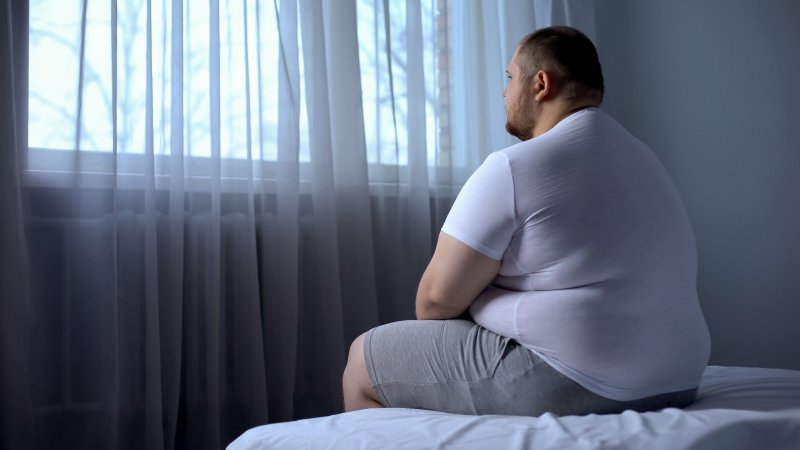
Good sleep is crucial for you to stay healthy and function during the day. Sleep apnea is a sleep condition that can get in the way of your slumber. You have probably heard that being overweight or obese can contribute to and make sleep apnea symptoms worse, but why is this the case? Can sleep apnea cause you to gain weight? Here’s what you should know about the connection between sleep apnea and body weight.
How Does Sleep Apnea Work?
Sleep apnea is a condition in which you stop breathing for periods of time during sleep. This can lead to a variety of serious health issues if left untreated. There are also numerous negative symptoms associated with sleep apnea that sufferers experience, including:
- Loud snoring
- Gasping for air during sleep
- Dry mouth
- Insomnia
- Excessive daytime sleepiness
- Difficulty paying attention
- Irritability
What’s the Link Between Sleep Apnea and Weight Gain?
Did you know that approximately 70% of people who have sleep apnea are also obese? Studies have confirmed that the risk of developing sleep apnea increases with weight gain. Sleep apnea symptoms also appear to worsen when one gains weight. The most likely reason for this is that fat accumulation in the neck leads to further narrowing of the airway, increasing the likelihood of obstruction during sleep.
Can Sleep Apnea Cause Weight Gain?
We know that weight gain increases the risk of sleep apnea, but sleep apnea may also contribute to weight gain. Sleep apnea decreases the duration and quality of sleep, which can contribute to a variety of negative issues in the body, including excess weight gain. Here are some of the ways that sleep apnea can lead to an increase in weight:
- Fatigue: When one is constantly fatigued due to low quality and duration of sleep, they are less likely to participate and excel when it comes to physical activity.
- Appetite Changes: Poor sleep can result in an increase in appetite and cravings for foods that are high in carbohydrates. This can lead to increased caloric intake and weight gain.
- Hormonal Changes: Sleep apnea can affect hormones that are involved in appetite regulation and metabolism, like insulin, leptin, and ghrelin.
Can Losing Weight Help with Sleep Apnea?
Yes! Weight loss is highly recommended for overweight patients who are suffering from sleep apnea. Doing so can reduce the severity of sleep apnea symptoms and lead to better overall health and quality of life.
Sleep apnea is difficult to deal with, but you aren’t completely out of luck. By working with your sleep physician and making the recommended lifestyle changes, you can experience improvement in your symptoms and even get a good night’s sleep!
About the Practice
At Star Sleep & Wellness in Frisco, we have a team of multiple board-certified sleep specialists who are highly credentialed and have many years of experience. Our team can tackle even the most challenging sleep cases. If you think that you may have sleep apnea, we’d be happy to help. For more information or to schedule an appointment, visit our website or call (844) 409-4657.
